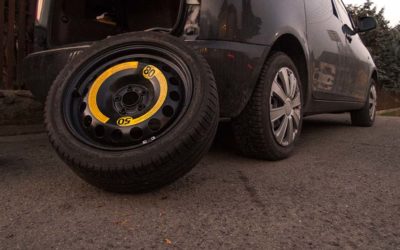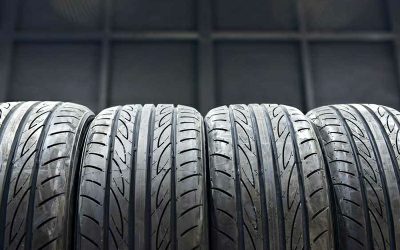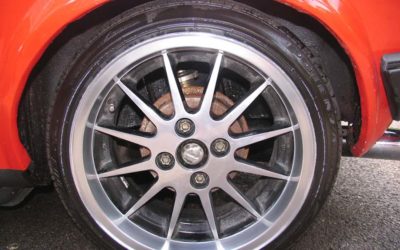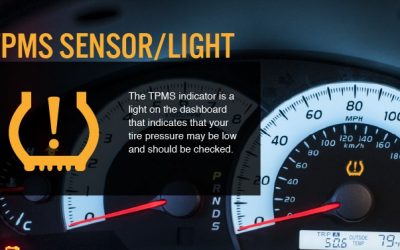Get GarageBand for Windows Free: A Complete Guide
GarageBand is a popular music-making software used by both amateurs and professionals around the world. While it is primarily designed for use on Apple devices, there are several methods available to download and use GarageBand on Windows-based systems. In this article, we will explore the different methods and provide a comprehensive guide on how to download and install GarageBand for Windows.
Key Takeaways:
- GarageBand is a widely-used music-making software.
- Windows users can download and install GarageBand using various methods.
- FreeGarageBand.com offers an official GarageBand resource for Windows.
- Minimum system requirements must be met for optimal performance.
- VMWare, Andy Android Emulator, and BlueStacks are popular methods for running GarageBand on Windows.
FreeGarageBand.com: The Official GarageBand Resource for Windows
FreeGarageBand.com is the official resource for downloading GarageBand on Windows. This website offers a free alternative to GarageBand for Windows users, providing access to a fully functional version of the software compatible with Windows 10 and other versions. With FreeGarageBand.com, you can enjoy all the features and capabilities of GarageBand without the need for an Apple device.
FreeGarageBand.com: The Official GarageBand Resource for Windows
Are you a Windows user looking to experience the power of GarageBand? Look no further than FreeGarageBand.com, the official resource for downloading GarageBand on Windows. This website offers a free alternative that allows you to enjoy all the features and capabilities of GarageBand without the need for an Apple device.
With FreeGarageBand.com, Windows users can tap into their musical creativity and produce high-quality music. Whether you’re a beginner or a professional, this resource provides a user-friendly interface that is easy to navigate and use. Best of all, it’s completely free!
Table: Comparison of GarageBand and FreeGarageBand.com
| Feature | GarageBand | FreeGarageBand.com |
|---|---|---|
| Compatibility | Exclusive to Apple devices | Compatible with Windows 10 and other versions |
| Price | Requires purchase or Apple device | Completely free |
| Functionality | Extensive library of sounds, loops, and instruments | Access to all GarageBand features |
| Interface | Designed for Apple devices | User-friendly interface for Windows users |
As shown in the table above, FreeGarageBand.com offers a comparable experience to GarageBand, with the added benefit of being compatible with Windows. Whether you’re a Windows 10 user or using a different version, you can download and enjoy GarageBand features for free through this official resource.
Minimum System Requirements for GarageBand on Windows
Before downloading and installing GarageBand on Windows, it is important to ensure that your system meets the minimum requirements. These requirements include:
- Operating system: Windows 7 or higher
- RAM: Minimum of 4GB (8GB recommended)
- Available disk space: At least 2GB
- Processor: Intel i5 or equivalent
By meeting these specifications, you can ensure optimal performance and functionality when using GarageBand on Windows.
Table: Minimum System Requirements for GarageBand on Windows
| Operating System | RAM | Available Disk Space | Processor |
|---|---|---|---|
| Windows 7 or higher | Minimum of 4GB (8GB recommended) | At least 2GB | Intel i5 or equivalent |
Meeting these requirements will ensure that your Windows system is capable of running GarageBand smoothly. It is important to note that these are the minimum requirements, and for the best experience, it is recommended to have higher specifications. By ensuring your system meets these requirements, you can enjoy all the features and capabilities of GarageBand on your Windows device.
Method 1: Using VMWare to Install GarageBand on Windows
One of the most popular methods for installing GarageBand on Windows is by using VMWare. VMWare allows you to create a virtual machine on your Windows PC that emulates the macOS environment, enabling you to run GarageBand seamlessly. This method requires downloading and installing VMWare Player, obtaining a copy of macOS Sierra, and configuring the virtual machine settings. By following the step-by-step instructions provided, you can successfully install GarageBand on your Windows system.
Step-by-Step Guide
- Download and install VMWare Player from the official website.
- Obtain a copy of macOS Sierra from a reliable source.
- Launch VMWare Player and create a new virtual machine.
- Follow the prompts to configure the virtual machine settings, including allocating RAM and disk space.
- Install macOS Sierra on the virtual machine.
- Once macOS Sierra is installed, launch the virtual machine and open the App Store.
- Search for GarageBand and click on the download button to install it.
- Once GarageBand is installed, you can launch it from the virtual machine and start creating music on your Windows system.
By using VMWare to install GarageBand on Windows, you can enjoy all the features and functionality of this popular music-making software, even if you don’t have an Apple device. Just make sure to follow the instructions carefully and ensure that your system meets the minimum requirements for running VMWare and macOS Sierra.
Method 2: Using Andy Android Emulator for GarageBand on Windows
Another method for running GarageBand on Windows is by using the Andy Android Emulator. This emulator allows you to run Android apps on your Windows PC, including GarageBand. By downloading and installing Andy, searching for GarageBand within the emulator, and launching the app, you can start using GarageBand on your Windows system. This method is particularly useful for Windows 11 users, as it provides a seamless experience.
With Andy Android Emulator, you can enjoy all the features and functionalities of GarageBand, such as creating music tracks, experimenting with different instruments, applying effects, and mixing your compositions. The emulator provides a smooth and responsive interface, allowing you to navigate through the GarageBand application effortlessly. Whether you’re a beginner or an advanced music producer, Andy ensures that you have the tools and resources you need to bring your musical ideas to life.
Benefits of using Andy Android Emulator for GarageBand on Windows:
- Compatibility with Windows 11 and other versions
- User-friendly interface for easy navigation
- Seamless integration with GarageBand on Android
- Access to a wide range of instruments, sounds, and effects
- Ability to save and export your music creations
By following the provided instructions, you can download and install GarageBand on Windows using Andy Android Emulator. Whether you’re a professional musician or an aspiring artist, this method allows you to unleash your creativity and take advantage of GarageBand’s powerful features on your Windows system.
| Method | Compatibility | User Interface | Features |
|---|---|---|---|
| VMWare | Windows 7 or higher | Emulates macOS environment | Full functionality of GarageBand |
| Andy Android Emulator | Windows 11 and other versions | User-friendly interface | Access to GarageBand on Android |
| BlueStacks Android Emulator | Windows 10 and other versions | Smooth user experience | GarageBand compatibility |
Method 3: Using BlueStacks Android Emulator for GarageBand on Windows
If you’re looking for another method to run GarageBand on your Windows system, you can consider using the BlueStacks Android Emulator. BlueStacks is a popular emulator that allows you to run Android apps on your Windows PC, including GarageBand. With BlueStacks, you can enjoy all the features and capabilities of GarageBand on Windows 10 and other versions, providing a user-friendly experience for music creation and production.
To get started with BlueStacks, you’ll need to download and install the emulator on your Windows PC. Once installed, you can search for GarageBand within the emulator and proceed to install the app. BlueStacks provides a seamless and smooth experience for running GarageBand on Windows, allowing you to unleash your creativity and compose music effortlessly.
Advantages of Using BlueStacks for GarageBand on Windows
Using BlueStacks as an Android emulator for GarageBand on Windows offers several advantages. Firstly, BlueStacks provides a user-friendly and intuitive interface, making it easy for users to navigate and use GarageBand. The emulator also offers smooth performance and compatibility with various Windows versions, ensuring a seamless experience for music composition and editing.
Additionally, BlueStacks allows you to access the wide range of instruments, loops, and sounds available in GarageBand. You can explore the extensive library and experiment with different sounds to create unique and professional-quality music. With BlueStacks, you can enjoy the rich functionality of GarageBand on your Windows system, making it a great option for Windows users who want to harness the power of this popular music-making software.
| Advantages of Using BlueStacks for GarageBand on Windows: |
|---|
| 1. User-friendly interface |
| 2. Smooth performance |
| 3. Compatibility with various Windows versions |
| 4. Access to a wide range of instruments, loops, and sounds |
Overall, using BlueStacks as an Android emulator for GarageBand on Windows is a viable option for Windows users who want to experience the power and versatility of this popular music-making software. With its user-friendly interface, smooth performance, and compatibility with various Windows versions, BlueStacks provides a seamless experience for music composition and production on Windows systems.
BandLab: The Best GarageBand Alternative for Windows
While GarageBand may not be available for Windows, there are alternative software options that offer similar features and capabilities. One such alternative is BandLab, which is considered the best GarageBand alternative for Windows users. BandLab features a beginner-friendly interface, a wide variety of instruments and sounds, and even some unique features not found in GarageBand. With BandLab, Windows users can unleash their musical creativity and produce high-quality music.
BandLab provides a comprehensive set of tools for music composition and production. The software offers a vast library of virtual instruments, including guitars, keyboards, drums, and more. Users can easily create and arrange tracks using the intuitive interface, and add effects and filters to enhance their music. BandLab also provides collaboration features, allowing users to collaborate with other musicians and share their creations online.
One of the standout features of BandLab is its cloud-based storage and collaboration capabilities. Users can store their projects in the cloud, making it easy to access and work on their music from any device with an internet connection. Additionally, BandLab allows for real-time collaboration, enabling multiple users to work on the same project simultaneously. This makes it a great tool for musicians who want to collaborate with bandmates or other artists.
BandLab vs. GarageBand: A Comparison
| Features | BandLab | GarageBand |
|---|---|---|
| Availability | Windows | Apple Devices Only |
| Interface | Beginner-Friendly | Intuitive |
| Instruments | Wide Variety | Wide Variety |
| Collaboration | Real-Time Collaboration, Cloud Storage | Cloud Storage |
| Unique Features | Cloud-Based Collaboration, Community Features | iOS Integration, Sound Library |
Overall, BandLab offers a robust and user-friendly alternative to GarageBand for Windows users. Its extensive instrument library, collaboration features, and cloud-based storage make it a popular choice among musicians. Whether you’re an aspiring artist or a seasoned musician, BandLab provides the tools you need to bring your musical ideas to life on your Windows PC.
Interface and Usability of GarageBand on Windows
GarageBand on Windows offers an intuitive interface that is easy to navigate and use, making it accessible for both beginners and experienced musicians. The layout of the software is divided into three major sections: tracks, instruments, and mixer, allowing users to seamlessly create and edit their music.
Tracks Section
In the tracks section, users can add and manipulate tracks and loops to build their compositions. GarageBand provides a wide variety of pre-made loops across different genres, making it simple to create music even without prior knowledge of music theory or instrumental skills.
Instruments Section
The instruments section of GarageBand offers a diverse selection of virtual instruments, including keyboards, guitars, drums, and more. Users can choose from a range of sounds and styles to suit their musical preferences. GarageBand also supports MIDI input, allowing users to connect external instruments and controllers for a more hands-on music-making experience.
Mixer Section
The mixer section of GarageBand provides users with the ability to add effects and adjust the volume, panning, and other parameters for each track. This enables musicians to fine-tune their sound and create professional-sounding mixes directly within the software.
Overall, GarageBand offers a user-friendly and visually appealing interface on Windows, making it a powerful tool for music composition and editing. Whether you’re a beginner or a seasoned musician, GarageBand provides the necessary tools and features to unleash your creativity and produce high-quality music.
| Pros | Cons |
|---|---|
| – Intuitive interface | – Limited compatibility with Windows operating systems |
| – Easy navigation | – Not natively available for Windows |
| – Wide selection of virtual instruments | – Requires additional software or emulators |
| – Extensive library of loops and sounds | – Some features may be limited compared to macOS version |
| – MIDI support for external instruments | – Limited customer support for Windows users |
Functionality and Support of GarageBand on Windows
GarageBand on Windows provides users with a wide range of functionality, allowing them to create and edit songs with professional results. The software comes equipped with a vast library of sounds, loops, and instruments, offering endless possibilities for music composition. Whether you’re a beginner or an experienced musician, GarageBand provides the tools and features needed to bring your musical ideas to life.
One of the key advantages of GarageBand on Windows is its intuitive interface, which makes it easy to navigate and use. The software is divided into three main sections: tracks, instruments, and mixer. In the tracks section, users can add and manipulate tracks and loops to build their compositions. The instruments section offers a wide selection of virtual instruments, allowing users to experiment with different sounds and melodies. The mixer section provides the ability to add effects to tracks, giving users the opportunity to fine-tune their creations.
When it comes to support, GarageBand on Windows boasts an excellent help section and a responsive customer support team. If users encounter any issues or have questions about the software, they can turn to the official developer, Apple, for assistance. Apple’s support team is dedicated to providing prompt and helpful solutions to ensure a smooth experience for GarageBand users on Windows.
Comparative Table: GarageBand vs. Other Music Production Software
| Feature | GarageBand | Alternative Software A | Alternative Software B |
|---|---|---|---|
| Intuitive Interface | ✓ | ✓ | ✓ |
| Wide Selection of Sounds | ✓ | ✗ | ✗ |
| Virtual Instruments | ✓ | ✓ | ✗ |
| Mixer Section | ✓ | ✓ | ✗ |
| Support | ✓ | ✓ | ✓ |
GarageBand on Windows provides a user-friendly experience with its intuitive interface, extensive sound library, and virtual instruments. While alternative software options may offer some similar features, GarageBand stands out with its comprehensive functionality and dedicated customer support. Whether you’re a beginner or an advanced musician, GarageBand on Windows is a powerful tool that can help you unleash your creativity and produce high-quality music.
Conclusion
While GarageBand may not be natively available for Windows, there are multiple methods and alternatives that allow Windows users to enjoy the benefits of this powerful music-making software. By following the step-by-step guides provided in this article, you can download GarageBand for Windows and embark on your musical journey.
One of the popular methods for installing GarageBand on Windows is by using VMWare. This allows you to create a virtual machine that emulates the macOS environment and run GarageBand seamlessly. Another option is to use Android emulators like Andy or BlueStacks, which let you run GarageBand on your Windows PC. These methods provide a great solution for Windows users who want to experience GarageBand’s features and capabilities.
If you prefer an alternative to GarageBand, BandLab is a fantastic option. It offers a beginner-friendly interface, a wide variety of instruments and sounds, and unique features not found in GarageBand. With BandLab, Windows users can unleash their musical creativity and produce high-quality music.
Regardless of the method or alternative you choose, GarageBand on Windows opens up a world of possibilities for music composition and editing. With its intuitive interface, extensive library of sounds, loops, and instruments, and excellent customer support, GarageBand provides Windows users with the tools they need to create professional-quality music.
FAQ
Can I download GarageBand for Windows for free?
Yes, you can download GarageBand for Windows for free using alternative methods such as VMWare, Andy Android Emulator, or BlueStacks.
Is FreeGarageBand.com the official resource for GarageBand on Windows?
Yes, FreeGarageBand.com is the official resource for GarageBand on Windows, providing a free alternative version of the software compatible with Windows 10 and other versions.
What are the minimum system requirements for GarageBand on Windows?
The minimum system requirements for GarageBand on Windows include Windows 7 or higher operating system, 4GB RAM (8GB recommended), 2GB of available disk space, and an Intel i5 processor or equivalent.
How can I install GarageBand on Windows using VMWare?
To install GarageBand on Windows using VMWare, you need to download and install VMWare Player, obtain a copy of macOS Sierra, and configure the virtual machine settings. Follow the step-by-step instructions provided for a successful installation.
Can I use the Andy Android Emulator to run GarageBand on Windows?
Yes, you can run GarageBand on Windows using the Andy Android Emulator. Download and install Andy, search for GarageBand within the emulator, and launch the app to get started.
How can I install GarageBand on Windows using BlueStacks?
To install GarageBand on Windows using BlueStacks, download and install the emulator on your Windows PC, search for GarageBand within the emulator, and install the app to start using GarageBand.
What is the best alternative to GarageBand for Windows users?
BandLab is considered the best alternative to GarageBand for Windows users. It offers a beginner-friendly interface, a wide variety of instruments and sounds, and unique features not found in GarageBand.
How is the interface and usability of GarageBand on Windows?
GarageBand on Windows features an intuitive interface that is easy to navigate and use. The layout is divided into three major sections: tracks, instruments, and mixer, allowing users to add and manipulate tracks, select instruments, and add effects to tracks.
What functionality and support does GarageBand on Windows offer?
GarageBand on Windows offers a wide range of functionality, including a large library of sounds, loops, and instruments for music composition. It also has an excellent help section and a responsive customer support team for any issues or queries.
Can I use GarageBand on Windows to create professional-quality music?
Yes, GarageBand on Windows enables users to create and edit songs with professional results. With its features and capabilities, Windows users can tap into their musical potential and produce high-quality music.







